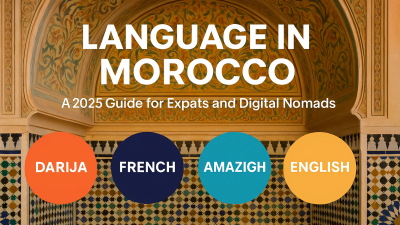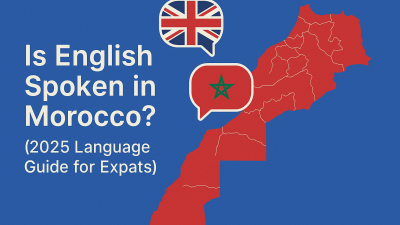Introduction: Culture That Captivates
Morocco is more than just a destination — it’s a living mosaic of Arab, Berber, African, and Andalusian influence. As a foreigner settling in Morocco, understanding its culture will deepen your appreciation and help you integrate with ease.
This guide explores the essential customs, traditions, values, and social etiquette that shape Moroccan life in 2025.
🤝 Moroccan Hospitality: A Way of Life
Moroccan hospitality is legendary — you’ll often hear, “Welcome, feel at home.”
Whether you’re a neighbor, guest, or stranger, expect:
- Mint tea (atay) served with ceremony
- A warm greeting: “Salam Alaykum” followed by cheek kisses or handshakes
- Being offered food — even if they don’t know you
💡 Tip: Always accept tea or at least a small sip — it’s rude to decline outright.
🕌 Religion & Daily Life
Islam plays a central role in Moroccan culture, but the country is known for its moderation and tolerance.
What you’ll experience:
- The call to prayer (adhan) 5x a day
- Fridays as the holy day (some shops close)
- Most public behavior shaped by modesty and respect
🧠 Expats don’t need to be Muslim, but it’s respectful to understand religious sensitivities.
🍛 Cuisine as Culture
Moroccan food is a bridge between people and cultures. Expect:
- Tagine — slow-cooked stew of meat & vegetables
- Couscous — typically served on Fridays
- Pastilla, harira, Rfissa, mint tea, and endless bread varieties
📌 Food is often eaten with the hand using bread (right hand only).
🎭 Traditions & Festivals
Morocco celebrates both Islamic holidays and Amazigh/seasonal festivals:
| Celebration | Description |
|---|---|
| Eid al-Fitr & Eid al-Adha | Religious celebrations with feasts |
| Mawlid | Prophet’s birthday, public events |
| Amazigh New Year | Celebrated especially in rural areas |
| Moussem Festivals | Saints’ days celebrated locally |
🎉 You might also witness weddings, henna parties, and even street Gnawa music nights.
🗣️ Language & Communication
- Arabic (Darija) is the spoken dialect in daily life
- French is used for administration, banking, signage
- Amazigh (Berber) spoken regionally, especially in Atlas Mountains
- English is growing in major cities and among younger generations
💡 Politeness is everything — people often say “inshallah,” “baraka,” “shukran,” etc., even in casual talk.
🧥 Dress & Social Norms
While Morocco is modern, modesty is still culturally expected, especially outside tourist zones.
- Cover shoulders and knees in small towns
- Swimwear is fine at the beach but not in city streets
- Public affection (kissing/hugging) is frowned upon
🧠 Final Tips for Expats & Nomads
- Learn a few Darija phrases — locals appreciate the effort
- Respect Ramadan hours and public fasting
- Always greet people before asking questions or entering shops
🧵 Conclusion
Moroccan culture is not something you observe — it’s something you live.
The deeper your understanding, the more rich and fulfilling your Moroccan journey will be — whether you’re staying 3 months or 30 years.


